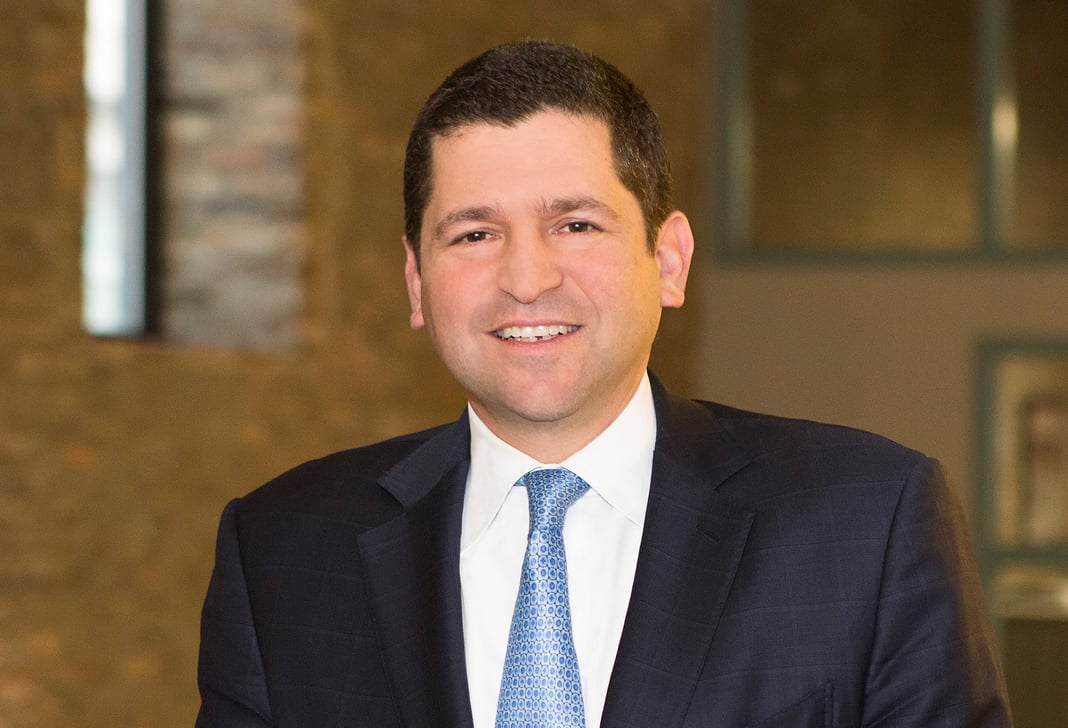Massachusetts District Court Finds Janitorial Franchisees are Employees, Not Independent Contractors
On March 23, 2010, the United States District Court for the District of Massachusetts held in Awuah v. Coverall North America, Inc. that a group of janitorial franchisees were misclassified as independent contractors.[1] Although the court's decision was based upon the particular arrangement between the franchisor and franchisees, it has sent shock waves through the franchising community, which generally considers its franchisees independent contractors. In fact, some franchisors have claimed that the decision may be a significant threat to the franchise business model. By implementing a few key business practices, however, franchisors can help protect their businesses from a finding that their franchisees are employees.
Background
Since 1985, Coverall North America, Inc. ("Coverall") has provided commercial cleaning services to more than 50,000 customers through more than 9,000 franchise owners, including more than 5,000 North American franchise owners. By developing a distinctive cleaning system, Coverall has become one of the largest global cleaning franchise companies.
Coverall franchisees are required to sign a standard franchise agreement. Under the agreement, all franchise owners must complete a training program and wear approved uniforms and identification badges while on customers' premises. Coverall provides the initial equipment and supplies, while franchisees are responsible for purchasing any necessary replacement equipment and supplies. Coverall has the exclusive right to perform all billing and collection for franchisees and then deduct any related fees before remitting payment to franchisees. For each cleaning service provided, Coverall receives management and royalty fees. Until May 2009, all customer contracts were with Coverall; a franchisee could not be a party to a contract unless a customer specifically requested direct contact with the franchisee.[2]
Procedural History
On February 15, 2007, a group of franchisees sued Coverall, alleging that Coverall misrepresented the amount of money they could make each month by purchasing a franchise. The plaintiffs also alleged that Coverall systematically breached franchise agreements by not providing or offering adequate work to produce the promised level of monthly income. Finally, the plaintiffs asserted that they were improperly classified as independent contractors and thereby denied various benefits of employment, including minimum wage, overtime pay, and eligibility for unemployment and workers' compensation. The plaintiffs sought compensation for the alleged violations, statutory trebling of wage-related damages, and attorneys' fees and costs.[3] On December 18, 2009, the plaintiffs filed a motion for partial summary judgment on the independent contractor issue.[4]
The Court's Summary Judgment Order
On March 23, 2010, the court issued a memorandum and order granting the plaintiffs' motion for partial summary judgment. The court began its analysis by stating that, under Massachusetts law, an individual is considered an employee unless:
- The individual is free from control and direction in connection with the performance of the service;
- The service is performed outside the usual course of the business of the employer; and
- The individual is customarily engaged in an independently established trade, occupation, profession, or business of the same nature as that involved in the service performed.[5]
The burden was on Coverall to establish these three elements, and it had to establish each element in order to demonstrate its franchisees were not employees. However, the court considered only the second prong, which it found to be dispositive. To satisfy the second prong, Coverall had to establish that the plaintiffs "perform[] services that are part of an independent, separate, and distinct business from that of the employer."[6]
In an attempt to establish that Coverall and its franchisees are engaged in distinct businesses, Coverall asserted that it is not in the commercial cleaning business but, rather, is in the franchising business. Specifically, Coverall argued that it sells, trains, and supports franchises but does not do any cleaning or employ anyone who cleans. According to Coverall, "[n]umerous courts have accepted that the functions and business of a franchisor are separate and distinct from those of a franchisee and that their shared economic interest does not make one the employer of the other."[7]
The court disagreed with Coverall's assertion that a franchisor's functions and business are separate and distinct from those of its franchisees. In fact, the court found that franchising is not in itself a business. Instead, franchisors sell goods or services by using the franchise model. The court also found: "Describing franchising as a business in itself, as Coverall seeks to do, sounds vaguely like a description for a modified Ponzi scheme—a company that does not earn money from the sale of goods or services, but from taking in money from unwitting franchisees to make payments to previous franchisees."[8]
The court then found that Coverall is engaged in the same business as its franchisees. The court based its conclusion upon several facts. For example, Coverall trains its franchisees and provides them with uniforms and identification badges. Coverall also contracted with all customers, with a few exceptions, until May 2009, and bills all customers for the cleaning services performed. Finally, Coverall receives a percentage of the revenue earned on every cleaning service. Based upon those facts, the court concluded that Coverall sells cleaning services, which are the same as the services plaintiffs provided. Because the franchisees did not perform services outside the course of Coverall's business, the court held that the Coverall franchisees are not independent contractors but are instead Coverall employees.
Possible Ramifications for Franchisors
The Awuah court based its finding on the unique facts before it. The degree of control that Coverall exercised over training, uniforms, contracting, and billing led the court to conclude that Coverall was engaged in the same business as its franchisees, and is thus an employer under Massachusetts law. Nevertheless, similar lawsuits are pending against commercial cleaning franchisors Jani-King International and Jan-Pro Franchising International.[9] Some franchisors fear they may be next. If franchisors are found to be employers, significant liability could result. Perhaps more importantly, such a finding could significantly affect franchisors going forward, both financially and competitively.
Franchisors that are deemed employers would be responsible for many employment-related costs that they have not previously had to shoulder. For example, franchisors deemed employers would have to pay minimum wage and overtime to all hourly employees. Such franchisors would also have to pay into Social Security, workers' compensation, and unemployment funds, depending on case specifics. Moreover, under the new health care bill, franchisors with more than 50 individuals deemed employees could be required to pay for health insurance or pay a $2,000 per-worker fine each year if any worker receives federal subsidies to purchase health insurance.[10] According to the International Franchise Association, these new costs will "severely impact the ability of the franchise businesses to operate, create jobs and provide … economic output."[11]
Franchisors that are found to be employers could also suffer a competitive disadvantage. Many franchisors rely on broad covenants not to compete to prevent franchisees from competing in the franchisor's business territory after termination or nonrenewal. These covenants may be harder to enforce if franchisees are deemed employees. This is because the enforceability of covenants not to compete may depend upon whether a court views a franchise agreement as a sale of a business or an employment relationship. Most courts have found that it is closer to a sale of a business since no side has a significantly stronger bargaining position, and they therefore allow more significant restrictions with covenants not to compete.[12] If a court finds that a franchise is an employment relationship, it may be reluctant to enforce an otherwise valid covenant not to compete.
Business Practices that Can Help Maintain Independent Contractor Status
Franchisors can reduce the likelihood of having franchisees deemed to be their employees by taking a few important steps. First, franchisors should be aware of any applicable independent contractor statutes in the states where they do business. Those statutes—not titles or labels—will determine whether franchisees are independent contractors or employees. Second, franchisors should carefully review their franchise disclosure documents and franchise agreements. Where appropriate, franchisors should ensure that the business descriptions in both emphasize that the franchisor merely supports the business format but does not actually sell the relevant product or service. Finally, and perhaps most importantly, franchisors should consider giving franchises greater control over their business relationships by allowing franchisees to perform tasks such as contracting with and billing customers. In other words, customers should be able to go directly to franchisees to purchase services or products. This kind of direct contact with customers indicates independence, which is a hallmark of independent contractor status.
Conclusion
The Awuah court's holding that Coverall's franchisees were misclassified as independent contractors has recently been a cause for concern in the franchising community. Franchisors fear that the additional costs and competitive disadvantage that could come with such a finding could put their businesses at risk. Importantly, however, the Awuah decision was limited to its facts. Moreover, franchisors can reduce their risk of being deemed employers by implementing a few key changes to their business practices.
Lawyer Contacts
For further information, please contact your principal Firm representative or one of the lawyers listed below. General email messages may be sent using our "Contact Us" form, which can be found at www.jonesday.com.
Michael Gray
Chicago
+1.312.269.4096
Allison E. Haedt
Columbus
+1.614.281.3972
Jeffrey J. Jones
Columbus
+1.614.281.3950
J. Todd Kennard
Columbus
614-281-3989
Alison B. Marshall
Washington
+1.202.879.7611
Andrew J. Sherman
Washington
+1.202.879.3686
Jones Day publications should not be construed as legal advice on any specific facts or circumstances. The contents are intended for general information purposes only and may not be quoted or referred to in any other publication or proceeding without the prior written consent of the Firm, to be given or withheld at our discretion. To request reprint permission for any of our publications, please use our "Contact Us" form, which can be found on our web site at www.jonesday.com. The mailing of this publication is not intended to create, and receipt of it does not constitute, an attorney-client relationship. The views set forth herein are the personal views of the authors and do not necessarily reflect those of the Firm.
[1] No. 07-10287-WGY, 2010 WL 1257980 (D. Mass. Mar. 23, 2010).
[2] Id. at *1.
[3] Doc. 79.
[4] Doc. 200.
[5] House Bill 1844, franchisor-backed legislation that is currently pending in the Massachusetts Legislature, would change the law so that all three prongs of the "misclassification test" would have to be violated in order for an employee to be deemed misclassified as an independent contractor. A similar bill was introduced in both 2008 and 2009. To date, the bill has not made it out of the Joint Committee on Labor and Workforce Development. See http://www.mass.gov/legis/186history/h01844.htm.
[6] Awuah, 2010 WL 1257980 at *2, citing American Zurich Ins. Co. v. Mass. Dept. of Indus. Accidents, No. 053469A, 2006 WL 2205085, at *4 (Mass. Sup. Ct. June 1, 2006).
[7] Id. at *2.
[8] Id. at *3.
[9] See, e.g., De Giovanni v. Jani-King International, Inc., et al., No. 1:07-cv-10066-MLW (D. Mass. Filed Jan. 12, 2007); Depianti, et al. v. Jan-Pro Franchising International, Inc., No. 1:08-cv-10663-MLW (D. Mass. Filed April 18, 2008); Myers, et al. v. Jani-King of Philadelphia, Inc., at al., No. 2:09-cv-01738-RBS (E.D. Pa. filed April 24, 2009). At the time of publication misclassification and wage violation claims were still pending in all of these cases.
[10] H.R. 4872 Sec. 1003, available at http://edlabor.house.gov/blog/2010/03/affordable-health-care-for-ame.shtml.
[11] Ruling Threatens Viability of Franchise Businesses in Massachusetts, International Franchise Association
[12] See, e.g., Boulanger v. Dunkin' Donuts, 815 N.E.2d 572 (Mass. 2004).



